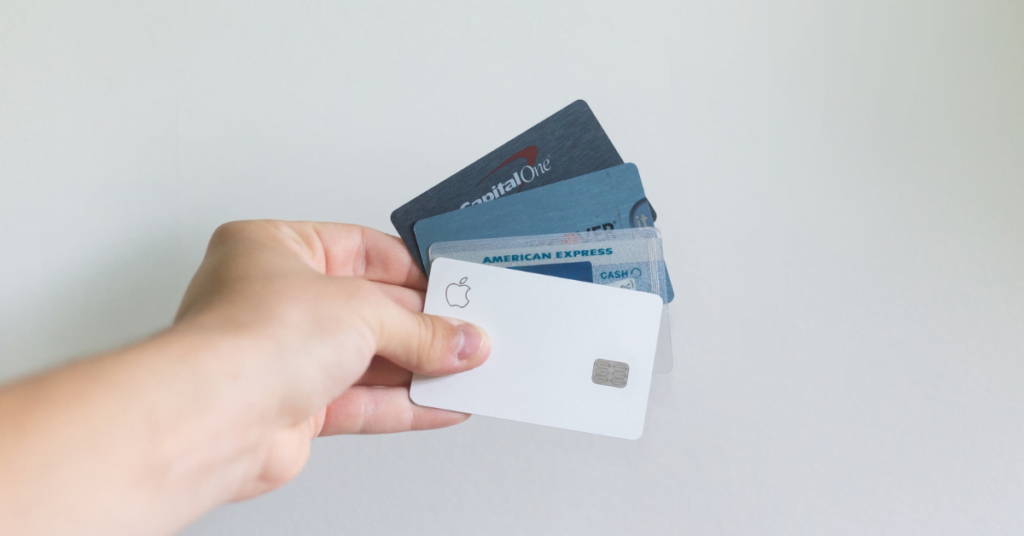Debt settlement is a process through which individuals negotiate with creditors to settle their debts for less than the full amount owed. Its purpose is to relieve overwhelming financial obligations and help individuals regain control of their finances.
However, amidst the prospect of resolving their debts, many people harbor concerns about the usability of their credit cards following the settlement. The question, “Can I still use my credit card after debt settlement?” lingers in the minds of those seeking debt relief.
In this article, we will explore the impact of debt settlement on credit card usage and provide insights on how individuals can continue using their credit cards responsibly post-settlement.
Table of Contents
Understanding Debt Settlement: Impact on Credit Score
A debt settlement arrangement is usually reached when the debtor is experiencing financial hardship and cannot fulfill their original debt obligations. In this case, it offers a chance for individuals to alleviate their financial burden by reaching a mutually acceptable agreement with creditors.
Debt settlement involves negotiating with creditors to agree on reducing the total debt amount. The debtor proposes a lower lump-sum payment or a structured payment plan that the creditor may accept as a final settlement. Once the settlement is reached and the agreed-upon amount is paid, the debt is settled, releasing the debtor from further liability for the remaining balance.
It is important to note that debt settlement can hurt credit scores and credit card accounts. When a debt is settled for less than the full amount, it may be reported to credit bureaus as a “settled” or “paid for less than the full balance” status. This negative notation on the credit report can potentially lower your credit score, making it more challenging to obtain credit in the future. Additionally, during the negotiation process, creditors may temporarily suspend the use of credit cards associated with the debt being settled.
Can I Use My Credit Card After Debt Settlement
Yes, using your credit card after debt settlement is possible, but several factors should be considered, such as
1. Temporary Account Suspension:
During the debt settlement process, it is common for creditors to temporarily suspend credit card accounts associated with the debt being negotiated. This suspension is typically a precautionary measure creditors take to mitigate the risk of further debt accumulation while the settlement is being finalized. However, the temporary suspension is not permanent, and the ability to use the credit card can be restored once the settlement is concluded.
2. Impact on Credit Score
Debt settlement can hurt credit scores. When a debt is settled for less than the full amount owed, it may be reported as such on the individual’s credit report. This notation can lower their credit score, reflecting the incomplete repayment of the debt. A lower credit score can make obtaining new credit in the future, including credit cards, more challenging. Lenders may view individuals who have settled debts as higher-risk borrowers.
Reinstating Credit Card Usage
1. Post-debt settlement communication:
After completing a debt settlement, it’s important to maintain effective communication with creditors. Here are two essential post-debt settlement steps: The first one is contacting creditors. Reach out to the creditors with whom you settled the debt. Inform them about the successful settlement and express your desire to reactivate the account. Open communication can help establish a positive rapport and facilitate restoring your credit.
Another one is a request for terms and conditions. Inquire about any changes to the terms and conditions of the account following the settlement. It’s crucial to understand if there are any modifications to interest rates, credit limits, or other relevant factors. This information will help you manage the reactivated account more effectively and plan your financial activities accordingly.
2. How to Negotiate Credit Card Terms?
Negotiating credit card terms can be a proactive step toward improving your financial situation. Here are two strategies to consider:
3. Requesting Lower Interest Rates
When contacting your credit card issuer, emphasize the importance of securing a lower interest rate. Lower rates can help you manage future balances more effectively, potentially saving you money in interest charges. Highlight any positive changes in your financial circumstances or competing offers you may have received to strengthen your negotiation position.
4. Confirming credit limit
Inquire about the status of your credit limit after a debt settlement. If your credit limit has been impacted negatively, discuss the possibility of adjusting it to a more reasonable level. A higher credit limit can provide you with more flexibility and assist in rebuilding your credit, as long as it’s used responsibly.
What are the Credit rebuilding Strategies?
Credit rebuilding strategies are crucial for individuals who have experienced credit setbacks and want to improve their creditworthiness. Here are two effective strategies:
1. Responsible Credit Card Usage
Responsible credit card usage is one of the most important aspects of credit rebuilding. It involves making timely payments on all credit obligations, including credit cards. Paying bills on time demonstrates reliability and can positively impact credit scores. Additionally, it’s essential to avoid carrying high balances on credit cards. Maintaining a low credit utilization ratio (the amount of credit used compared to the credit limit) is key. Ideally, keeping the ratio below 30% is recommended.
2. Secured Credit Cards
Obtaining a secured credit card can be a valuable strategy for those with poor or limited credit history. With a secured credit card, individuals provide a security deposit as collateral for the credit limit. Individuals can gradually build a positive credit history by making regular, on-time payments. Over time, this can lead to an improved credit score and pave the way for qualifying for unsecured credit cards or loans.
How to Monitor Credit Reports?
Monitoring credit reports is crucial for maintaining a healthy credit profile. Here are two key strategies.
1. Regular Credit Report Checks
Encouraging individuals to regularly review their credit reports from the major credit bureaus—Equifax, Experian, and TransUnion is important. They can identify errors, fraudulent activities, or discrepancies that may negatively affect their credit by checking their reports.
2. Disputing Inaccuracies
If individuals spot any inaccuracies or incorrect information on their credit reports, they should promptly dispute it with the credit reporting agencies. It can be done by contacting the agencies in writing and providing supporting documents to substantiate the dispute. Resolving inaccuracies is essential for maintaining an accurate credit history.
Alternatives Methods to Credit Card Usage

Debit cards offer several benefits as an alternative to credit card usage. They allow you to purchase using funds directly from your bank account, eliminating the risk of accumulating debt.
1. Debit Cards
Debit cards also provide convenience and wide acceptance, functioning similarly to credit cards for online and in-person transactions.
2. Cash or Check Payments
They can be advantageous for certain transactions. Cash payments offer an immediate and tangible exchange, while checks provide a payment record. Both methods can help individuals manage their spending, as they are limited to the available cash on hand or in their bank account, promoting budgeting and reducing reliance on credit.
Related Articles,
Is Debt Consolidation Bad for Credit?
How Long After Debt Settlement Can I Buy a House?
Is Debt Settlement Better than Not Paying?
Conclusion
In conclusion, this article has emphasized the possibility of using credit cards after debt settlement, provided responsible credit card usage is practiced. We discussed the importance of negotiating credit card terms, such as requesting lower interest rates and confirming credit limits. These strategies can help individuals manage their finances effectively and rebuild their credit.
By implementing these strategies and making informed decisions, individuals can regain financial stability and effectively utilize credit cards after debt settlement. With careful planning and responsible financial practices, rebuilding credit and achieving a healthier financial future is possible.






